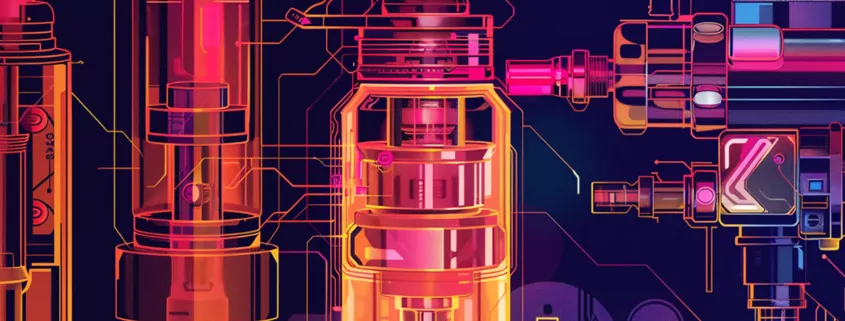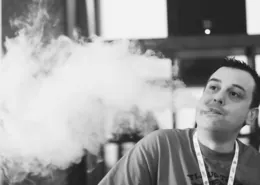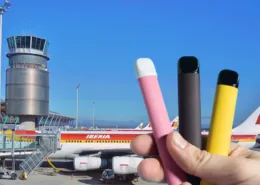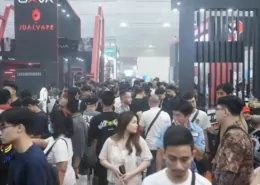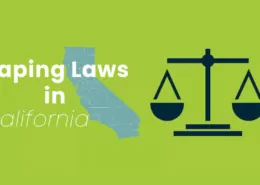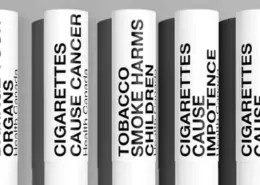Vaping Industry Faces Turmoil Under FDA and Trump
The $22 billion global vaping industry is already embroiled in a complex battle involving regulators, Big Tobacco, and startups. With Donald Trump’s return to the White House, the market is poised to become even more chaotic. The industry, which thrives on innovation and consumer demand, faces increasing scrutiny from the FDA and state-level crackdowns on unauthorized products.
FDA Crackdown on Unauthorized Vapes
The FDA has not authorized fruit-, candy-, or mint-flavored vapes, citing concerns that these products appeal to teenagers. Despite this, retailers across the U.S. continue to sell flavored devices, arguing that the FDA’s enforcement efforts are overreaching. Up to 70% of vapes sold in the U.S. are believed to be unregulated, often stronger and less rigorously tested than authorized products.
In Louisiana, a state-level crackdown on flavored vapes began in March. Police have seized so many devices that a new storage facility was opened outside Baton Rouge to hold them. Twice a month, thousands of confiscated e-cigarettes are destroyed in controlled fires. At least 12 retailers have lost their permits since the state began enforcing restrictions.
“Between the fine, the threat of suspension, and the seizure and destruction of their product, we’re hopeful that we can impact the market and protect public safety,” said Ernest Legier, commissioner of the Louisiana Office of Alcohol and Tobacco Control.
Despite enforcement efforts, the illicit market remains robust. “You can still go online and buy products with little age verification. There are products coming in from other states,” Legier noted. A task force created by the U.S. Department of Justice and the FDA has seized shipments worth over $80 million since July and issued more than 700 warning letters to manufacturers, importers, and distributors of unauthorized products.
“Enforcement against unauthorized e-cigarettes is among the FDA’s highest priorities,” the regulator stated in December. However, the illicit supply chain remains well-established, with unauthorized vapes often disguised as packages of flashlights or alarm clocks.
Big Tobacco’s Role in the Vaping Market
Big Tobacco, historically at odds with regulators, now finds its interests aligned with the clampdown on illicit vapes. Companies like British American Tobacco (BAT) and Altria Group Inc. are investing heavily in vaping products to offset declining cigarette sales. BAT aims for 50% of its sales to come from smokeless products by 2035.
“Disposables are the absolute largest threat that we have to our business today,” said Valerie Mras, senior vice president for vapor brands at BAT’s U.S. subsidiary, Reynolds American Inc.
Trump’s Influence on the Industry
President Trump’s administration has added another layer of complexity. Before taking office, Trump pledged to “save vaping” in a social media post after meeting with the Vapor Technology Association (VTA). The VTA has since urged Trump to honor his commitment, running ad campaigns on Fox News.
However, Trump’s administration also received significant support from Big Tobacco. A Reynolds subsidiary donated $8.5 million to the super PAC Make America Great Again Inc., and $1 million for the inauguration ball. Within days of starting his second term, Trump withdrew a proposed ban on menthol cigarettes and flavored cigars, boosting tobacco company shares.
The U.S. is not alone in its vaping challenges. Most countries regulate e-cigarettes, but few outlaw them entirely. In the UK, flavored products are permitted but face restrictions on strength and size. In Australia, vapes can only be sold legally in pharmacies, yet illicit devices remain widely available.
The FDA’s Regulatory Toolbox
Modern e-cigarettes, developed in 2003, were initially marketed as smoking cessation tools. However, the introduction of flavored products like Juul led to accusations of hooking a new generation on nicotine. The FDA’s crackdown on flavored e-cigarette cartridges in 2020 has not stopped the illicit market, which continues to thrive.
“The kids who were addicted to Juul are now the adults who are addicted to e-cigarettes,” said Erika Sward of the American Lung Association. “Unfortunately, we particularly have these illicit products coming in from China that are particularly egregious.”
Vaping companies are increasingly taking legal action against the FDA. Darrell Suriff, founder of Pastel Cartel and American Vapor Co., has filed a lawsuit challenging the FDA’s refusal to accept over 100 products. Suriff estimates he has spent $17 million seeking FDA approval for his Esco Bars product line, which was the second most commonly used brand among young Americans in 2023.
“The U.S. government has allowed millions of non-American-owned Chinese brands to flood the market without following the rules,” Suriff said. He declined to comment on ongoing litigation but emphasized the financial toll of FDA rejections.
The Future of the Vaping Industry
As the industry navigates regulatory challenges and market pressures, the future remains uncertain. Big Tobacco’s push for market share, combined with the FDA’s enforcement efforts and Trump’s unpredictable policies, creates a volatile environment. Retailers and manufacturers alike are calling for a balanced approach that protects public health without stifling innovation.
“The growth of the illicit marketplace is largely the result of premature regulations before an adequate number of products has been approved,” said Henry Armour, president of the National Association of Convenience Stores. “In virtually any product category, you’re going to generate illicit trade.”
- Cook Islands Charges Australian Tourist in Vape Bust - August 14, 2025
- Brazil: Anápolis Approves Ban on Vaping in Public Spaces - August 14, 2025
- Mexico Passes Law to Ban Tobacco Ads, Expand Smoke-Free Zones - August 13, 2025

